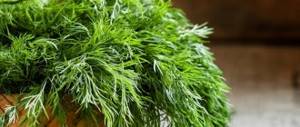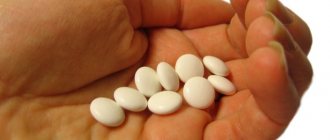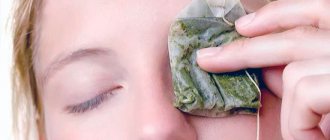Melon belongs to the melon crops and is considered one of the best fruits in terms of taste and nutritional qualities. In addition to its aromatic and sweet taste, melon is very useful for treating the kidneys and urinary system. The pulp contains a large amount of vitamins, fiber and macroelements, which contributes to the speedy cure of kidney diseases. Melon seeds can cure inflammation and cleanse the kidneys of harmful substances.
Why is melon so good for the kidneys?
Melon fruits are rich in valuable vitamins, micro- and macroelements. This fruit contains:
- vitamins - C, P, A, folic acid, B vitamins;
- minerals - sodium, zinc, potassium, iron, copper, silicon, phosphorus;
- fiber (dietary fiber)
In addition, this product is low-calorie and does not contain cholesterol, which is especially useful for people with atherosclerosis and overweight. For patients with kidney pathology, this fruit is especially useful because it reduces inflammation, has a significant diuretic effect, and stimulates the breakdown of kidney stones. As a result, pain is reduced and harmful substances are removed from the kidneys.
How to properly use melon for kidney pathologies?
Melon pulp and seeds are used to treat kidney diseases. Fiber, which is contained in melon pulp, stimulates metabolic processes in the body, which additionally has a beneficial effect on kidney function. Melon seeds are especially useful for pathological conditions of the genitourinary system, since it is thanks to their effect that inflammation is relieved. In addition, it is thanks to melon seeds that the breakdown of kidney stones is stimulated.
To prepare a decoction of pumpkin seeds you need:
- grind the seeds in a mortar or blender;
- add 1 tbsp to 250 ml of water. l. crushed seeds, cook for 10 minutes;
- Cool the resulting broth and strain through cheesecloth.
It is recommended to drink this decoction twice or thrice a day, half a glass (100 ml). You need to drink it before eating. This decoction should be used as a strong diuretic. Thanks to its effect, the kidneys begin to filter better and more harmful substances are removed from the body.
The milk mixture is also prepared using melon seeds. This recipe contains 1 tbsp. a spoonful of seeds is poured into 250 ml of hot milk. Leave the resulting milk-melon mixture for 30 minutes. It is recommended to drink this drink warm, half a glass twice a day. You should drink the mixture before meals. In addition to its beneficial effect on the urinary system, this drink has a beneficial effect on men with prostate diseases.
For patients with kidney diseases, melon water will be no less useful. To prepare this drink you need:
- grind a glass of melon seeds in a blender or coffee grinder;
- add crushed seeds to 3 liters of warm boiled water;
- Mix the resulting mixture thoroughly and leave for 8-10 hours;
- drink throughout the day (without restrictions).
It is important to remember that melon alone cannot cure kidney disease. It is necessary to continue drug treatment of the disease in parallel.
That's what it is - a golden melon!
It is difficult to list all the healing capabilities of melon: it cures anemia, gout, urolithiasis, is indicated for all diseases of the cardiovascular system, intestines, liver, quenches thirst, has a calming effect on the nervous system, helps remove cholesterol from the body, has a diuretic and choleretic effect.
When treating melons - not occasional consumption, but treatment - the day before you need to eat only vegetable dishes, give up meat and dairy products.
For those who suffer from angina pectoris, uric acid diathesis, arthritis, or have kidney or biliary tract diseases, it is useful to have a fasting melon diet two days a week. In this case, during the day you should eat 1.5-2 kg of fresh melons, 250-200 g of healing pulp at a time every 1.5-2 hours.
After several days of a melon diet, people who suffer from osteochondrosis experience pain relief and vertebral mobility improves.
KIDNEY STONES, URILOSIS DISEASE. Leave 1 cup of crushed melon seeds overnight in 3 liters of warm boiled water and drink like water, without restriction - this gives a quick and positive result. Dry the seeds well, but do not wash them. Store in a glass jar.
Dried melon seeds, crushed in a coffee grinder, take a teaspoon 3-4 times a day for impotence and for the treatment of the prostate gland.
If you eat 500 g of melon per day, constipation goes away and the functioning of the digestive tract is normalized.
For joint pain, along with the usual treatment, it is very useful to eat 2-3 slices of melon in the morning and evening every day, at least during the season. Within a week there will be relief.
If you have a headache, it is recommended to eat 200 g of melon - slowly, slowly, holding the chewed pulp in your mouth for as long as possible.
Melon peel and pulp are applied to burns, boils and bruises . In addition, it is good to apply a piece of frozen melon juice to burns.
Melon bath helps in case of allergic rash . To prepare it, pour 1 glass of juice into water at a temperature of 36-37 ° C or add pieces of melon or chopped melon rinds. 7 procedures are enough for a course.
A compress on the chest with melon pulp alleviates the condition of bronchitis, pneumonia and an asthma attack .
Urolithiasis: 1 cup of crushed melon seeds, pour 3 liters of warm boiled water, leave overnight and drink during the day instead of water without restrictions.
In case of impotence and prostate diseases, grind dried melon seeds (they should not be washed before drying) in a coffee grinder, take 1 tsp. 3-4 times a day.
A melon mask removes age spots and acne. Wash your face with warm water. Apply finely grated pulp in a thin layer and leave for 10-15 minutes, then wash, dry your face with a cotton napkin and lubricate with any nourishing cream. After such a mask, the skin becomes soft and elastic.
Melon can also lift your spirits, as its pulp contains substances that promote the production of the happiness hormone. Therefore, these fruits are recommended to be included in the diet for depression.
Another benefit of melons is carotene, which has a good effect on vision. A few pieces are enough to improve the condition of your eyes.
Who is forbidden to eat melon?
Eating melon is not recommended for certain pathologies:
- diarrhea;
- inflammatory diseases of the gastrointestinal tract - ulcers, gastritis, duodenitis;
- diabetes;
- allergy to this fruit.
In addition, this fruit is not recommended for breastfeeding mothers, as it may affect the frequency and consistency of the baby's stool. It is also contraindicated to eat melon on an empty stomach and not to mix it with fermented milk products: in such situations, diarrhea may develop. In addition, this fruit should not be mixed with alcohol. Unripe melons are strictly forbidden to eat.
Have you been trying to cure your KIDNEYS for many years?
Head of the Institute of Nephrology: “You will be amazed at how easy it is to heal your kidneys just by taking it every day.
Our readers successfully use Renon Duo to treat kidneys. Seeing how popular this product is, we decided to bring it to your attention. Read more here...
Berry (a small juicy or fleshy fruit, usually of shrubs or herbaceous plants, which does not require biting or cutting when eaten) cranberry is a popular folk medicine. Juicy, with a pronounced sourness, the berry contains many valuable microelements and vitamins. The useful product is used to prepare fruit drinks, decoctions, and consumed fresh and dried to strengthen the immune system, heart muscle, and prevent cancer pathologies.
Doctors confirm the fact: cranberries have a noticeable therapeutic effect for kidney diseases. How to properly prepare a healing decoction? For what kidney pathologies are sour berries (a small juicy or fleshy fruit, usually of shrub or herbaceous plants, which does not require biting or cutting when eaten) contraindicated? The answers are in the article.
- Composition of juicy berries
- Effect on the body
- The benefits of a natural product
- Indications for use
- Contraindications
- Proven recipes for kidney treatment
- Morse
- Kvass
- Cranberry juice
- Compote of cranberries and apples
- Useful tips
Cranberries (a group of flowering plants of the Ericaceae family, uniting evergreen creeping shrubs growing in swamps in the Northern Hemisphere) are a storehouse of useful substances. The rich composition explains the active therapeutic effect.
- benzoic acid (chemical compounds capable of donating a hydrogen cation (Brønsted acids), or compounds capable of accepting an electron pair to form a covalent bond (Lewis acids));
- retinol;
- B vitamins;
- vitamin K;
- tocopherol;
- manganese;
- phosphorus;
- potassium;
- magnesium;
- calcium;
- silver;
- boron;
- iron;
- iodine;
- ascorbic acid (a characteristic feature is a high concentration of useful substances).
Find out about the causes of pain when urinating in women and the treatment of possible diseases.
The dosage and instructions for use of the urological drug Urotol are described on this page.
Compositions made from fresh/dried cranberries exhibit a complex effect:
- diuretic;
- restorative;
- antimicrobial;
- dissolve stones;
- cleanse the kidneys;
- remove harmful salts;
- heal wounds;
- normalize metabolism;
- prevent relapses after treatment of infectious pathologies in the urinary tract;
- reduce the risk of cancer;
- reduce the level of bad cholesterol;
- help fight stress.
Healing drinks from fresh berries, dried, dried cranberries (a group of flowering plants of the Ericaceae family, uniting evergreen creeping shrubs growing in swamps in the Northern Hemisphere) exhibit a noticeable medicinal effect. In case of kidney pathologies and the formation of stones, the vitamin product is no less active than synthetic drugs, but there are practically no side effects if the rules are followed.
Beneficial properties of cranberries:
A natural product with active properties is prescribed for treatment and prevention in the following cases:
- urolithiasis disease;
- formation of kidney stones;
- stagnation of urine;
- pyelonephritis;
- weak immunity;
- emotional overload;
- accumulation of toxins and waste;
- cystitis.
This useful product is not suitable for all patients. If you have an individual intolerance to substances in the berries, you need to choose another natural remedy with an anti-inflammatory, diuretic effect. Cranberries contain vitamins and many microelements, but their high acid content negatively affects the condition of delicate mucous membranes.
You should not eat sour berries if you have the following pathologies:
- peptic ulcer;
- increased acidity with gastritis;
- liver dysfunction;
- increased sensitivity of tooth enamel.
Healthy berries are used in dried, dried and fresh form, ground with sugar, add honey, prepare juice and fruit drink (a drink traditional for Russian cuisine, berry juice diluted with water and sweetened) (a drink traditional for Russian cuisine, berry juice diluted with water and sweetened). Herbalists offer several simple recipes for various pathologies of the kidneys (Kidney (anatomy) is an organ of the excretory (urinary) system of animals and humans) and the urinary tract.
Is the harm of melon exaggerated?
Melon as such has no harm at all. But there are cautions associated with how to properly eat melon.
Melon should be consumed as a separate meal and in moderation. She has this peculiarity of overloading her intestines, hence the complaints. You cannot combine it with cold water, fermented milk drinks and alcohol - this is guaranteed to upset your stomach. And you shouldn’t eat it on an empty stomach either - in this case, you will turn the healthiest product of melon into a harmful side, with consequences for the digestive system. The ideal option is to enjoy the benefits of melon in between meals, and after 2 hours if the lunch was heavy.
Important! Since this is a sweet berry containing a large amount of sugar, it is recommended to consume it in limited quantities for diabetics, ulcer sufferers and all those who do not benefit from sugar.
Of course, the melon must be fresh and grown without chemical hazards, at least obvious. The fact is that when they talk about the dangers of melon, they usually do not mean the berry itself, but the notorious nitrates that are “fed” to the healthy product. And nitrates, as you know, can turn into poison everything that grows on the ground and under it.
And the last thing that is usually written in the instructions for any medicine: “There are no contraindications, except for individual intolerance to the drug.” What are we talking about? The fact that you can react to melon with an allergy - we are all living human systems.
Aromatic diuretic
Is melon a diuretic or not? Melon has been used for medicinal purposes since ancient times. Avicenna also wrote about its use. Melon copes with depressive conditions, improves the functioning of the immune system, intestines and gently cleanses it of waste and toxins due to natural fiber, and removes bad cholesterol.
Melon is used to treat:
- cholelithiasis and urolithiasis;
- liver;
- vascular system;
- liver;
- kidney;
- urinary system.
The fruit is beneficial for the urinary system due to its diuretic properties. Melon has a mild effect, and its effect as a diuretic is noticeable.
Nuance. Melon should not be eaten after or with milk, kefir or other dairy products. This combination causes stomach discomfort or stool upset.
This melon culture has a pronounced diuretic property. It rids the body of excess fluid, helps remove stones and sand from the kidneys, since the minerals contained in the fruit contribute to their breakdown. Melon reduces pain and helps cure kidney diseases faster.
The diuretic effect of melon is achieved due to the fact that it changes the balance of sodium and potassium in favor of the latter. Not only melon pulp is used as a diuretic, but also the seeds from which a decoction is prepared. It relieves inflammation and cleanses the kidneys.
Briefly about melon and watermelon
Beloved by us since childhood, these delicacies are related to annual plants growing in melon fields. Solanaceae genus, false berries.
These false berries are native to Africa and India . Now they grow all over the world thanks to greenhouses and specially bred varieties. The harvest is harvested from early July to late September. Their taste, size and benefits they bring to the body depend on the growing conditions of these crops.
Both of these crops do not like arid climates and poor watering, and also cannot bear fruit well in conditions of high humidity.
The average weight of a ripe melon is 2-10 kg , and a watermelon can reach up to 15 kg . There are many shapes and colors of these crops. Modern breeders have also developed yellow watermelons and green melons. The calorie content of watermelon is 39 kcal , melon - 36 kcal . The water content in them is almost the same - 92% .
They are so similar, but are they similar in their beneficial properties? Let's try to figure it out.
How to use melon as a diuretic
The product is most useful when eaten fresh, although frozen melon pulp retains its properties for up to three months. The norm for melon in diets aimed at losing weight or eliminating swelling is 1.5-2 kg. There is another formula for calculating consumption rates, which is used in folk medicine: 1 kg of melon per 35 kg of body weight.
During a therapeutic diet, drink at least 2 liters of water. The duration of the diet is three days. The daily intake of melon is divided into 3-4 doses. Other products are excluded from the menu.
For those who find such food restrictions difficult or have health problems, it is better to replace the mono-diet with a combined one. Light food is allowed: low-fat soups, meat and cheeses. The morning meal starts with oatmeal. Meals are made in fractions, trying to avoid overeating.
Take the medicinal fruit separately from main meals. With such a diet, the daily norm of melon is 600-800 g. The duration of the diet is 7-10 days.
Dried melon, its benefits and ways to get the treat at home
There are few people in the world who are indifferent to the aroma and taste of ripe melon. But, like all other varieties of melons, this “false berry” has one significant drawback - the fresh shelf life is too short. In an effort to gain the opportunity to savor the fragrant gift of nature all year round, which was written about in the Bible itself, people learned to dry melons. And it turned out that dried melon is in no way inferior to its fresh prototype either in taste or in terms of healthiness. So what is dried melon useful for, what vitamins does it contain?
For what purposes is it suitable?
Traditional medicine recommends diuretics for patients suffering from kidney diseases, urolithiasis, and the presence of sand in the urinary system. Such products help wash away stones and sand, relieve inflammation and reduce pain.
Does melon have a similar effect? Undoubtedly. It washes away stones, eliminates pain and swelling - frequent companions of kidney diseases.
Puffiness that occurs during pregnancy can also be eliminated with melon. But long-term, restrictive diets are not allowed. Fasting days are allowed, but strictly according to the indications of the attending physician.
Attention! If you have kidney stones, be sure to consult your doctor before starting melon treatment. If the stones are large, they can cause harm - they will clog the ducts. In the stage of exacerbation of kidney diseases, you should also not self-medicate, and start a sweet diet only after consultation with a specialist.
Melon seeds are an effective diuretic. They are most often used for medicinal purposes. Prepare this decoction: brew 10 g of dry seeds with a glass of boiling water and keep in a water bath for 15-20 minutes. Afterwards it is closed, wrapped and left for about three hours.
How it helps the urinary system and kidneys
Melon pulp is rich in fiber and vitamins, thanks to which kidney and bladder diseases are cured faster. The swelling that often accompanies kidney disease goes away.
In folk medicine, melon seeds are widely used: they eliminate swelling and wash away stones, relieve inflammation in the kidneys and bladder. Decoctions from seeds, cleansing the kidneys and urinary tract, provide rapid relief of pain during bowel movements.
Contraindications
When consuming melon, you should observe moderation and do not overeat. There are also contraindications:
- allergic reaction, individual intolerance to the product;
- gastritis, duodenal ulcer, stomach;
- diabetes.
Nursing mothers should be careful, as babies may develop colic or indigestion, even allergies. After the baby reaches three months, the mother can introduce the product into her diet in small portions and carefully monitor the baby’s condition.
People prone to diarrhea should not overuse melon, as these fruits have a slight laxative effect.
Composition and beneficial properties
The juicy yellow pulp of melon contains many useful substances: vitamins, proteins, fiber, vegetable sugar, and various minerals. The fruits are especially rich in iron and potassium, which are necessary for the treatment of blood vessels, liver and urinary system. The content of such an element as silicon in the berry ensures a good appearance of the skin (eliminates age spots, freckles) and shine to the hair.
Due to the content of folic acid, melon fruits are used to improve digestion, normalize the nervous system and, as a general tonic for all organs (brain, gastrointestinal tract, heart muscle). The fruits are considered a powerful aphrodisiac and a means of helping to increase male strength; they are used to treat sexual dysfunction and normalize the functioning of the prostate.
Melon seeds for kidney stones (recipes)
The mixture is prepared very simply: take 1 tbsp. l. melon seeds and add them to 250 ml of hot milk. Infuse the liquid for about half an hour and drink 100 ml warm 2 times a day before meals. This medicine will ease suffering and have a positive effect on men (with prostate disease), as well as patients suffering from poor urination and kidney stones.
Treatment of kidney stones and nephritis is carried out using a mixture of water and melon seeds: take 1 tbsp. l. seeds, grind them to a powder. Pour the contents into a 250 ml glass and gradually pour hot water into it, stirring. Strain the liquid and drink 100 ml 3 times a day before the main meal. And here is another recipe for a mixture for urolithiasis, which you can drink without restrictions (like water): take 1 glass of melon seed, grind it in a mortar or using a coffee grinder. Take 3 liters of warm (not hot) water and add powdered seeds. Stir and leave to infuse for 8-10 hours.
A decoction of melon seeds has proven itself well as a diuretic for kidney diseases. To prepare the decoction, you need to take melon seeds and grind them in a blender. Take 1 tbsp. l. the resulting mixture and pour it into a 250 ml container. Place the container on the fire and boil. Then cool, squeeze and take half a glass 2 times a day before meals.
Watermelon is the most diuretic berry
Watermelon is a diuretic, known even to children. This fruit, almost entirely composed of water, has the unsurpassed ability to remove excess fluid and provide the body with easily digestible sugars. The most amazing thing is that even diabetics can eat this seemingly sweet berry. At the same time, not only pink, but also white pulp, located under the green skin, has a diuretic effect, and it has greater diuretic properties than the usual sweet pulp. The juice from the white pulp is such a strong diuretic that drinking more than half a glass of it a day is simply dangerous, while the red pulp can be consumed 2-3 kg per day without fear for your health.
Watermelon is a good diuretic for relieving edema caused by kidney failure, which in turn often occurs during pregnancy. But for hypertension, watermelon should be taken with caution and little by little throughout the day, since at first watermelon does not lower blood pressure, but raises it due to the fact that there is more fluid in the blood. When this fluid leaves the body, blood pressure drops.
A decoction of crushed watermelon rinds also has a diuretic property that quickly relieves swelling.











